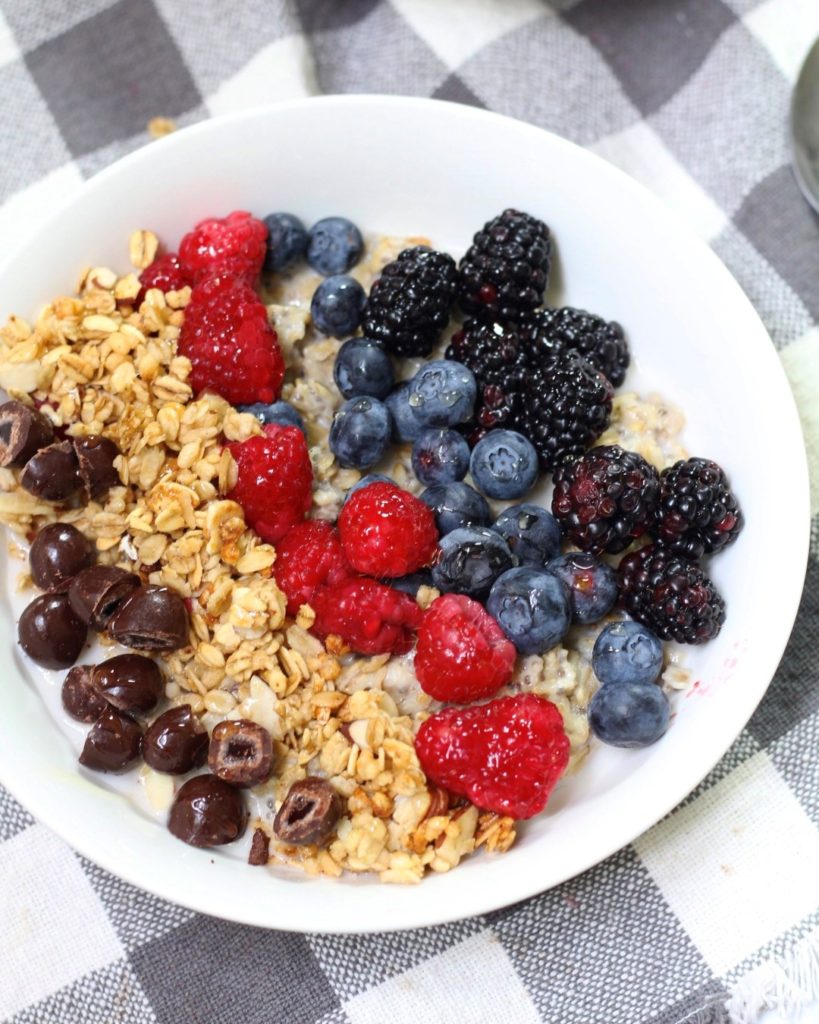There is a lot of controversy about the importance of eating breakfast. What does science say about skipping breakfast? Is it really an important meal?
Several studies have tested different eating patterns to see what is healthiest. This applies to weight gain and even heart disease and type 2 diabetes. One thing we know is that people did not evolve automatically eating three meals a day as we do now. Food was not as easily available as it is today and there were no refrigerators until 100 years ago. In the past, food was scarce, and people were confronted with food scarcity. Today the challenge is food abundance.
Today, research shows we eat every three hours about 15 hours during the day.1 In a study in which this 15 hours was reduced to a 10 to 12-hour feeding window for overweight people, the result was a drop in weight of seven pounds over 16 weeks.1 With this simple intervention of reducing the eating period, subjects lost weight, became more energetic, slept better, and everyone chose to continue the practice on their own for a year.1
In another study, normal-weight healthy subjects ate only one meal per day of as much as they wanted.2 The result was that this group lost five pounds after eight weeks.2 While reducing meal frequency showed weight reduction and improvement in heart disease risk, eating one meal was not comfortable, and people felt hungry.
The study that showed the best of both worlds was one in which eating earlier in the day was found to be optimum.3 The same number of calories in food eaten in the morning was found to be healthier than those eaten later in the day. Subjects had an eating window from 8 am to 3 pm, after which they fasted until the next day.3 Most dramatic as an indicator of health was the drop in blood pressure in five weeks from 123/82 down to 112/72.3 Also, in two large studies, those skipping breakfast gained more weight than those who ate breakfast.4,5
In conclusion, eat a big breakfast, or lunch, but cut back around dinner time. Or, as the saying goes, “Eat breakfast like a king, lunch like a prince, and dinner like a pauper.” You will lose weight and be healthier for it.
References
1. Gill S, Panda S. A Smartphone App Reveals Erratic Diurnal Eating Patterns in Humans that Can Be Modulated for Health Benefits. Cell Metab. 2015;22(5):789-98. doi: 10.1016/j.cmet.2015.09.005.
2. Stote KS, Baer DJ, Spears K, et al. A controlled trial of reduced meal frequency without caloric restriction in healthy, normal-weight, middle-aged adults. Am J Clin Nutr. 2007;85(4):981-8. doi: 10.1093/ajcn/85.4.981.
3. Sutton EF, Beyl R, Early KS, Cefalu WT, Ravussin E, Peterson CM. Early Time-Restricted Feeding Improves Insulin Sensitivity, Blood Pressure, and Oxidative Stress Even without Weight Loss in Men with Prediabetes. Cell Metab. 2018;27(6):1212-1221.e3. doi: 10.1016/j.cmet.2018.04.010.
4. O’Neil CE, Nicklas TA, Fulgoni VL 3rd. Nutrient intake, diet quality, and weight/adiposity parameters in breakfast patterns compared with no breakfast in adults: National Health and Nutrition Examination Survey 2001-2008. J Acad Nutr Diet. 2014 Dec;114(12 Suppl):S27-43. doi: 10.1016/j.jand.2014.08.021. Epub 2014 Nov 24.
5. Sakurai M, Yoshita K, Nakamura K, et al. Skipping breakfast and 5-year changes in body mass index and waist circumference in Japanese men and women. Obes Sci Pract. 2017 Apr 3;3(2):162-170. doi: 10.1002/osp4.106.


